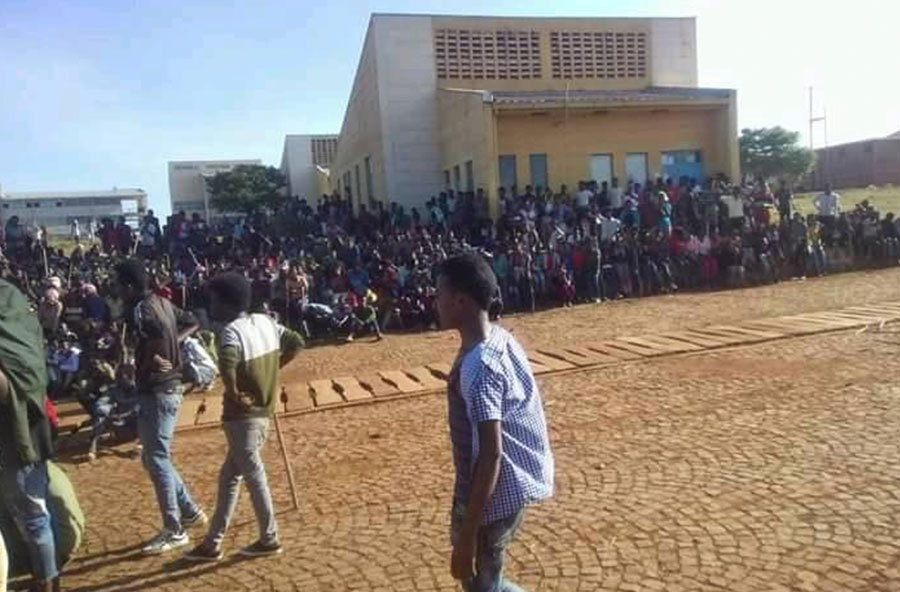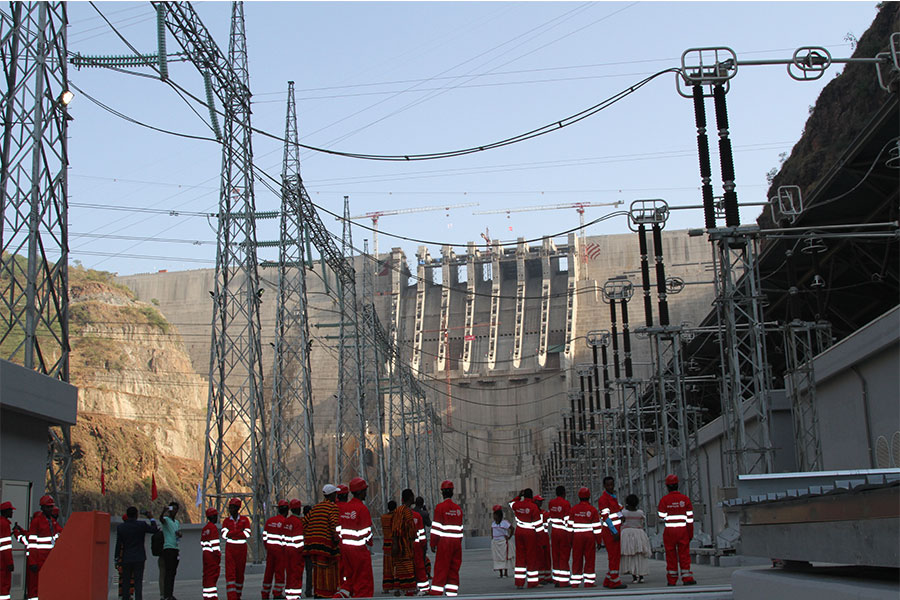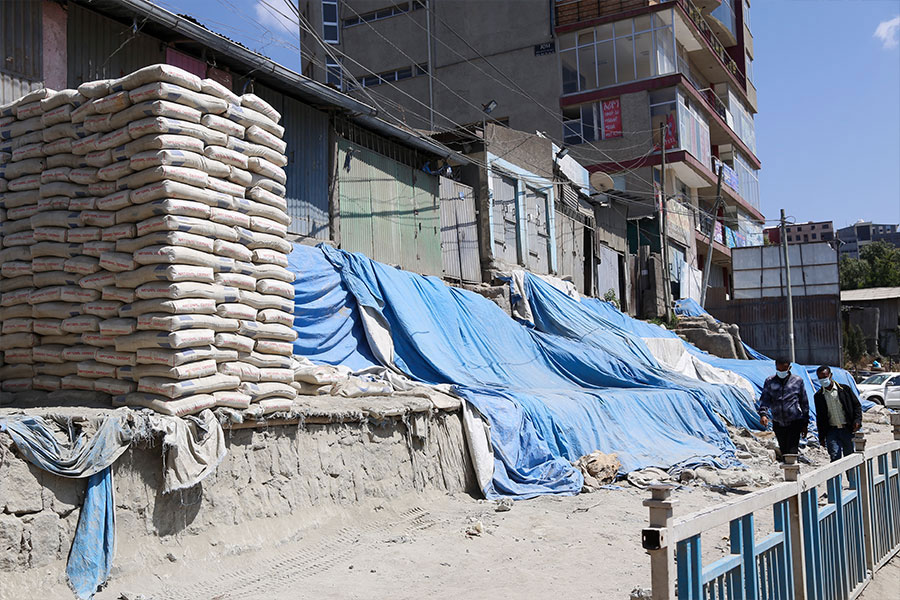
Agenda | Dec 05,2018
Jun 4 , 2022
By BERSABEH GEBRE ( FORTUNE STAFF WRITER )
The federal government has approved the injection of billions of Birr to contractors undertaking public projects covering them from cost escalations in construction materials and inputs. Some construction companies have yet to receive contract adjustments double the value they initially signed up for.
Price variations in the bill of materials have led to long delays and suspensions of public projects, often causing disputes and litigations.
It is the story of Tower Plc, incorporated 18 years ago with 3.5 million Br capital. It is now a construction firm caught up in confusion, hired to build a dining hall in Dilla University, in the Southern Regional State, at a contract cost of 48 million Br. It had committed to complete the project in 18 months but has yet to finish it. Tower's management says right-of-way issues forced the company to wait for half a year before commencing construction.
"We're qualified for a cost escalation adjustment," said Aboneh Gessese, a shareholder and general manager of the company.
However, the laws dictate that cost adjustment can only be considered a year following the effective date of contracts.
A study carried out by the Construction Works Regulatory Authority, a federal agency supervising and evaluating progress on public projects, identified projects eligible for the cost escalation adjustment under 41 public universities, half of the ongoing 800 public projects with an outlay of close to 100 billion Br. The study led to a proposal tabled to Ahmed Shide, minister of Finance, two months ago.
Incorporated 25 years ago, Berhan Tobia Construction was contracted for three projects with a combined value of 217 million Br, including the erection of an administration building and assembly hall at Bahir Dar University. The firm was awarded the contracts four years ago and expected to finalise them within two years. The projects are still afoot.
The cost of these projects shot up by 250pc, according to Natnael Semachew, general manager of the company.
“We're hoping the cost adjustment would be quick," he said.
Experts had initially determined the value of the adjustments based on a formula introduced three years ago. However, the method was a source of contention between contractors and clients. Last month, the Public Procurement & Property Authority changed the formula. Its Director General, Haji Ebsa, decided price adjustments should be determined using a different method introduced 12 years ago.
A postgraduate from the University of Greenwich, London, Haji has worked at the Finance Ministry in different capacities for close to a decade before assuming his current position.
His decision may provide some breathing room for contractors, who have been in an uproar over the skyrocketing prices for building materials seen over the past few years. The foreign currency crunch and price fluctuations for fuel and rebar in international markets, coupled with runaway inflation, have battered the construction industry. The price of cement, one of the primary inputs for the industry, has tripled to over 700 Br a quintal.
Despite authorities' efforts to tame the surging prices and improve supply, including setting price caps, the markets were not tamed.
The Construction Contractors Association, an industry lobby group led by Girma Habtemariam, urges to see more done to respond to the industry's problems.
“The approval is a long time coming,” said Girma.
The lobby group has been pushing officials to conduct a study to identify the extent of the problems. An assessment conducted by the Authority reveals that other factors, such as changes in design and lengthy procurement processes, are partly responsible for driving up project costs.
The adjustment of the contract values has been complicated by the absence of a comprehensive construction inputs price index. The shortcoming forced the Authority to survey and register input prices from producers and suppliers. Projects scheduled for completion in less than a year and a half are ineligible for cost adjustments. However, contractors contend that the term "effective date" is ambiguous and could refer to the bid closing, contract signing, or project commencement dates.
Experts say that cost escalation adjustments should be made regularly considering the inflationary environment and project delays' effects on the economy.
Yonas Chaka, a construction management expert with 25 years of experience, advises officials to look into other contract modalities, such as cost-plus contracts. Contractors receive payment for all construction-related expenses at a predetermined margin.
PUBLISHED ON
Jun 04,2022 [ VOL
23 , NO
1153]

Agenda | Dec 05,2018

Fortune News | Jul 06,2019

Sunday with Eden | Nov 20,2021

Radar | Jul 08,2023

Commentaries | Jul 13,2020

Life Matters | Sep 01,2024

Radar | Sep 11,2020

Fortune News | Feb 14,2024

Fortune News | Jan 13,2024


Dec 22 , 2024 . By TIZITA SHEWAFERAW
Charged with transforming colossal state-owned enterprises into modern and competitiv...

Aug 18 , 2024 . By AKSAH ITALO
Although predictable Yonas Zerihun's job in the ride-hailing service is not immune to...

Jul 28 , 2024 . By TIZITA SHEWAFERAW
Unhabitual, perhaps too many, Samuel Gebreyohannes, 38, used to occasionally enjoy a couple of beers at breakfast. However, he recently swit...

Jul 13 , 2024 . By AKSAH ITALO
Investors who rely on tractors, trucks, and field vehicles for commuting, transporting commodities, and f...

Nov 1 , 2025
The National Bank of Ethiopia (NBE) issued a statement two weeks ago that appeared to...

Oct 25 , 2025
The regulatory machinery is on overdrive. In only two years, no fewer than 35 new pro...

Oct 18 , 2025
The political establishment, notably the ruling party and its top brass, has become p...

Oct 11 , 2025
Ladislas Farago, a roving Associated Press (AP) correspondent, arrived in Ethiopia in...